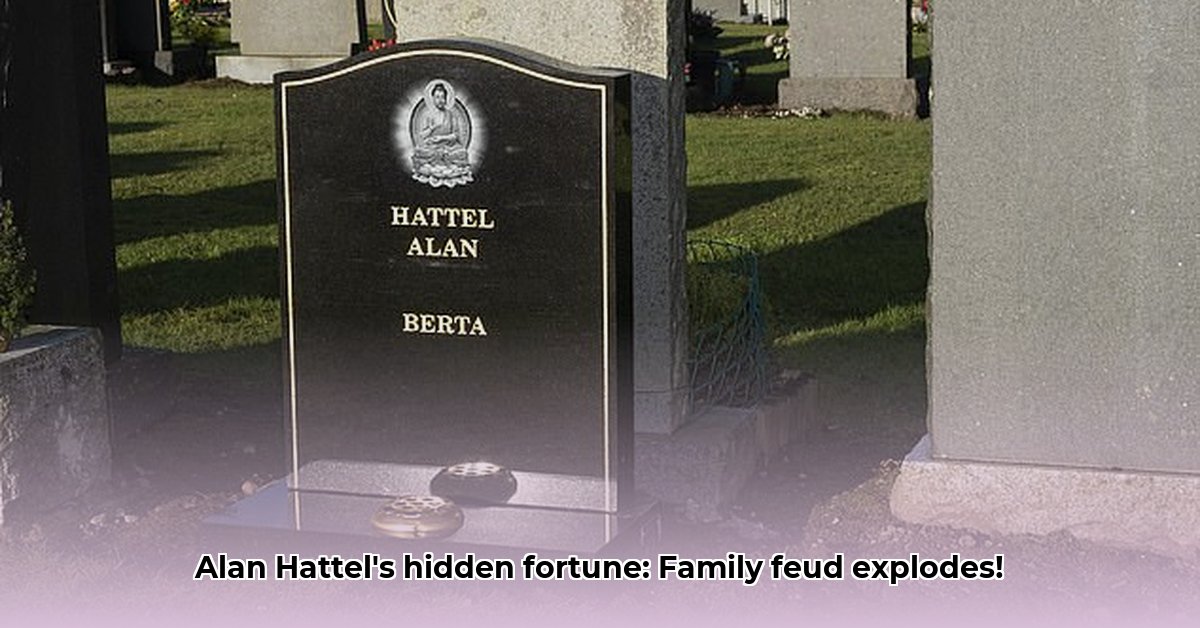
Hattel Family Feud Erupts Over Unexpected Grave Plot Purchase
Seventy-five-year-old Alan Hattel, a retired welder, received a shocking surprise: his ex-wife, Berta, purchased a shared grave plot for them, complete with a headstone, 26 years after their separation. This unexpected act, reported by the Scottish Sun and CityCeleb, has ignited a bitter family dispute, raising questions about communication, end-of-life planning, and potential legal ramifications. Alan, who prefers cremation, feels his wishes were disregarded; Berta maintains her actions were intended to save their daughters future expenses. The ensuing conflict highlights the importance of open communication and careful planning around sensitive end-of-life issues. For more information on Alan Hattel's net worth, see this page.
The initial revelation prompted strong reactions. Alan expressed his anger and disappointment, feeling blindsided by Berta’s decision. Their daughters, Collette and Lynn, found themselves mediating between their parents' conflicting views, with Collette publicly defending her mother's actions. This public airing of family grievances revealed longstanding communication issues and unresolved resentments, a situation many families can unfortunately relate to.
While the Scottish Sun focused on the emotional fallout of the situation, CityCeleb hinted at the potential financial motivations behind Berta's actions. Although Alan Hattel's net worth remains private, the situation compels questions about whether financial factors influenced Berta’s decision. Was this a carefully considered financial strategy, or a poorly executed attempt at preemptive planning?
The legal implications are complex. Questions arise around Berta's right to purchase a grave plot without Alan's consent. Legal precedent in similar cases is limited, suggesting a potential for protracted and costly legal battles. Further complicating matters is the headstone itself: can it be removed or altered without Alan's agreement? These legal complexities underline the significance of clear communication and legally documented end-of-life plans.
What's next for the Hattel family? The situation underscores the need for professional intervention. Family counseling or mediation could facilitate reconciliation and foster a more constructive dialogue. This highly publicized dispute serves as a stark reminder of the importance of open family discussions about end-of-life wishes, financial planning, and the need for legally sound documentation. The lack of these crucial conversations has created a very public and painful family conflict, emphasizing the value of clear communication and demonstrating how seemingly straightforward decisions can have unintended, and dramatic, consequences. The ongoing saga highlights the need to proactively address end-of-life planning, ensuring that family wishes are transparently communicated and legally protected.
How to Avoid a Grave Family Dispute: Planning for End-of-Life
The Hattel family's highly publicized conflict serves as a cautionary tale, revealing the complexities surrounding end-of-life arrangements. To avoid similar situations, families need to prioritize proactive planning and open communication.
Key Steps for Responsible End-of-Life Planning:
Open Communication: Initiate regular family discussions about end-of-life wishes and preferences. Sharing details prevents future misunderstandings and fosters mutual understanding.
Comprehensive Estate Planning: A well-drafted will and trust ensures assets are distributed according to the deceased's wishes, minimizing the potential for disputes.
Designated Executor/Trustee: Appoint a responsible individual to manage the estate, reducing the emotional burden on grieving family members.
Regular Review: Estate planning requires regular updates to reflect changing circumstances. Review and update documents periodically.
Detailed Funeral Instructions: Provide clear and comprehensive instructions on funeral preferences (burial vs. cremation, service type, headstone inscription, etc.).
The Hattel family’s experience serves as a powerful lesson, reminding us that clear communication and careful planning are essential to avoid potentially devastating family conflict. Failing to do so can lead to painful and public disputes centered around deeply personal and sensitive matters.